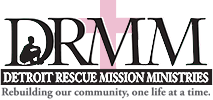Thank goodness the federal government is back up and running after a 16-day shutdown. At issue was the implementation of President Obama’s new healthcare law, the Affordable Care Act, also known as Obamacare. Tea Party Republicans were intent on not funding the government, unless Democrats agreed to delay the start of the healthcare act. The standoff ended with Obamacare intact.
Now the President has turned his attention to ensuring that all Americans have access to quality, affordable health insurance. The new law strives to lower healthcare costs, and it gives states the option to expand Medicaid coverage to all eligible people with earnings less than 133 percent of the Federal Poverty Level.
So, what impact will the Affordable Care Act have on the nation’s homeless? Will it help prevent homelessness? According to the United States Interagency Council on Homelessness, the new healthcare law will benefit the homeless by making health insurance accessible and affordable; providing preventative, wellness and behavioral healthcare services; and focusing on the whole person’s health needs by partnering with community-based organizations.
The Affordable Care Act is welcome news for the nation’s homeless. Especially for the growing number of children without healthcare coverage who must suffer through worsening health issues, a lack of immunizations, and crisis visits to hospital emergency rooms. Here in the Detroit-area, there are an estimated 550,000 individuals without health insurance. As many as 100,000 of them are children ages 10 and under.
Since 2008, the Detroit Rescue Mission Ministries (DRMM) has operated the non-profit S.A.Y. Detroit Family Health Clinic in partnership with S.A.Y. Detroit, the charity founded by journalist and best-selling author Mitch Albom. The clinic provides free maintenance and preventative healthcare services for uninsured and homeless children and their mothers.
At DRMM, we also provide medical care for the thousands of homeless individuals and families who are unemployed, uninsured or underinsured, and living in poverty. Often, their medical conditions have worsened due to the stress and challenges of being homeless. As a result, many homeless individuals only receive healthcare during emergency room visits. Preventative care is nonexistent.
Others are in desperate need of kicking an addiction that has dragged them into homelessness. Each year, DRMM provides in-patient substance abuse treatment and detoxification services to an estimated 1,700 uninsured men and women.
And, in some cases, pre-existing, serious health issues can contribute to a person’s homelessness. The illness and the inability to pay expensive medical bills can lead to a downward spiral that leaves the individual bankrupt, jobless and uninsured.
Treating a homeless person’s medical challenges is a first step toward rebuilding his or her life and giving them a chance at a healthier tomorrow.




